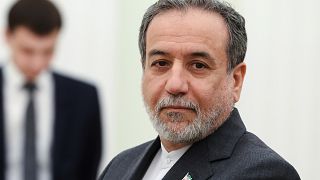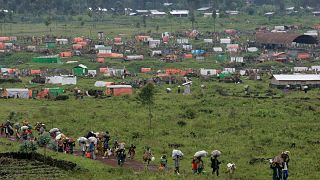Algeria
A tribute march was organized on Sunday in Paris for the 60th anniversary of the bloody police crackdown on a protest by Algerians in the French capital, during the final year of their country's independence war with its colonial power.
Human rights and anti-racism groups and Algerian associations in France joined in the protest march, calling on authorities to further recognize the French state's responsibilities related to Algeria's independence war and to further open up archives.
The commemoration comes after French President Macron acknowledged that "crimes" committed on October 17, 1961 - which authorities have sought to cover up for decades - were "inexcusable for the Republic."
Protesters on that day had answered a call for a peaceful demonstration by the French branch of the National Liberation Front, which was fighting for Algerian independence, against a discriminatory nighttime curfew targeting Algerians in the Paris region.
"The repression was brutal, violent, bloody" under the orders of Paris police chief Maurice Papon, Macron said in a statement released Saturday.
About 12,000 Algerians were arrested and dozens were killed, "their bodies were thrown into the Seine River," the statement said.
Historians say at least 120 protesters died, some shot and some drowned, according to Macron's office.
The exact number has never been established as archives remain partially closed.
Papon later became the highest-ranking Frenchman convicted of complicity in crimes against humanity for his role in deporting Jews during World War II.
Ahmed Toul, holding a photo of himself aged 13 on the streets of Paris on that fateful night, said the police were "were at boiling point".
For many, the bloody repression of 1961 resonates with France's current political debate.
Anti-racism activist Wissam Xelka told The Associated Press that the crackdown was "a symbol of the whole colonial treatment that took place and it's not just about October 17, 1961."
"There's a continuity between the way the events of October 17 unfolded and the treatment today with the rise of the far-right," he said.
Activists want the massacre to be recognized as a "state crime" committed by police, the opening of a memorial site, and reparations, amid other demands.
The Movement Against Racism and for Friendship Between People, or MRAP, deplored that Macron's statement did not include "any word about the context of the Algeria war, any word on colonialism, nothing about archives... even less about reparation."












Go to video
Man City closing in on swoop for Wolves’ Rayan Aït-Nouri
01:09
United Kingdom backs Morocco's autonomy plan for Western Sahara
01:06
Algeria: Three former presidential candidates sentenced to 10 years in jail
01:09
France and Algeria in deepening diplomatic crisis amid Tit-for-Tat expulsions
Go to video
Algeria commemorates thousands killed by French troops in 1945 massacres
Go to video
Moroccan boxer trades punches and patient care on path to Olympics